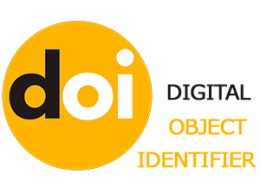Criteria for Accepting Software Requirements Negotiation Tools in the Software Industry
DOI:
https://doi.org/10.31580/ojst.v3i3.1676Keywords:
Criteria, Decision-Making, Requirements, Negotiation, Stakeholders, ModelsAbstract
Requirements negotiation is a centralized process of making a decision in order to resolve conflicts in the requirements of the stakeholder. The negotiation will enable the shared vision of software to be developed among the heterogeneous stakeholder in the software industry to be achieved. Many process models used for the negotiation of stakeholder’s requirements have been proposed for the software industry by the research community, yet the acceptance of these process models is discouraging. This study tends to investigate the inadequate adoption of requirements negotiation process models. Further, it finds the acceptance criteria for the software industry to adopt requirements negotiation models. Finding shows that the software industries do not adopt the process models. The perceived usefulness, perceived ease of use and many more criteria have been identified through the literature review on the general criteria of software systems acceptance.
References
Ahmad, S., I.E.A. Jalil, and S.S.S. Ahmad, An Enhancement of Software Requirements Negotiation with Rule-based Reasoning: A Conceptual Model. Journal of Telecommunication, Electronic and Computer Engineering (JTEC), 2016. 8(10): p. 193-198.
Grünbacher, P. and N. Seyff, Requirements negotiation, in Engineering and managing software requirements. 2005, Springer. p. 143-162.
Braun, P., et al., E-negotiation systems and software agents: Methods, models, and applications, in Intelligent decision-making support systems. 2006, Springer. p. 271-300.
Sofian, H.B., et al., A requirements negotiation process model that integrates EasyWinWin with quality assurance and multi-criteria preference techniques. 2014. 39(6): p. 4667-4681.
In, H.P. and D.J.J.U. Olson, Requirements Negotiation Using Multi-Criteria Preference Analysis. 2004. 10(4): p. 306-325.
Hung, S.-Y., C.-M. Chang, and T.-J.J.G.I.Q. Yu, Determinants of user acceptance of the e-Government services: The case of online tax filing and payment system. 2006. 23(1): p. 97-122.
Heirman, W. and M.J.P. Walrave, Predicting adolescent perpetration in cyberbullying: An application of the theory of planned behavior. 2012. 24(4): p. 614-620.
Ajzen, I., Attitudes, traits, and actions: Dispositional prediction of behavior in personality and social psychology, in Advances in experimental social psychology. 1987, Elsevier. p. 1-63.
Xia, W. and G. Lee. The influence of persuasion, training and experience on user perceptions and acceptance of IT innovation. in Proceedings of the twenty first international conference on Information systems. 2000. Association for Information Systems.
Huang, J., et al. Social Recommendation with Interpersonal Influence. in ECAI. 2010.






